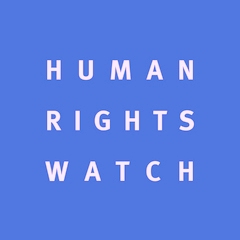Bangladesh urged to stop deaths of mutiny suspects
 Dhaka - Human Rights Watch asked Bangladesh Saturday to stop the deaths in custody of suspected mutineers, as reports that 16 soldiers died in detention since a bloody uprising at the Dhaka headquarters of Bangladesh's border guards. "The Bangladesh government should protect detainees suspected of involvement in a February massacre of army officers from being killed or mistreated," the New-York-based rights watchdog said in a statement.
Dhaka - Human Rights Watch asked Bangladesh Saturday to stop the deaths in custody of suspected mutineers, as reports that 16 soldiers died in detention since a bloody uprising at the Dhaka headquarters of Bangladesh's border guards. "The Bangladesh government should protect detainees suspected of involvement in a February massacre of army officers from being killed or mistreated," the New-York-based rights watchdog said in a statement.
The government should ensure that those responsible for the massacre are held accountable and quickly charged or freed, have access to lawyers, and, if charged, receive a fair trial in a civilian court, the statement added.
The 33-hour troop mutiny at the headquarters of the Bangladesh Rifles (BDR), which ended on February 26, killed more than 70 officers and heightened tension between the armed forces and the newly elected government of Sheikh Hasina Wazed.
Authorities detained more than 1,100 soldiers for the mutiny as the government launched three separate investigations by the army, the police criminal investigation department and an independent administrative unit.
The detainees were being interrogated by the army-led joint forces.
Following reports of the deaths of 16 paramilitary soldiers, the BDR said in a statement Thursday that four of the detainees committed suicide, six died of heart attacks while the rest died of other diseases.
It also said that commanding officers had been instructed to make their soldiers aware of "the negative aspects of suicide" as killing oneself is a regarded a sin and attempt to commit suicide is punishable office.
"Given the history of abuses by security forces in Bangladesh, there is no reason to take at face value the claim that these detainees have committed suicide," said Brad Adams, Asia director at Human Rights Watch.
"The government needs to act immediately to make sure that there are no more deaths in custody," the said adding that the watchdog received reports of torture of the detainees, allegations the Bangladeshi authorities denied.
"The explanations given by representatives of the security forces are simply not credible," Adams said. "Torture is a regular 'investigation technique' in Bangladesh and killing of detainees in government custody is an endemic problem."
The watchdog suggested the government set up a commission comprising lawyers, human rights workers, and other civil society representatives to visit and monitor detention centres, ensure that detainees are properly treated, and document abuse allegations.
Human Rights Watch also called on the government to ensure that the accused are tried in civil, rather than military, courts.
Adams was doubtful about a fair trial by military court in an environment where the army was seeking retribution. "To try border guards before a military tribunal would be in violation of both domestic and international laws," he said.(dpa)